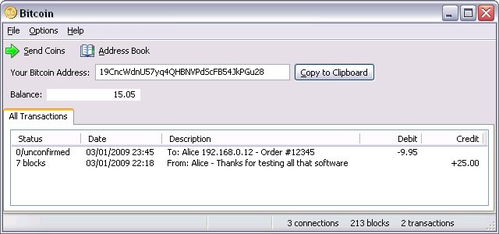Bitcoin vs Bitcoin Cash, A Comprehensive Comparison
In the realm of cryptocurrency, Bitcoin (BTC) and Bitcoin Cash (BCH) stand as two prominent players, yet they embody different philosophies, structures, and utilities. Understanding their distinctions is crucial for investors and enthusiasts alike.
In the realm of cryptocurrency, Bitcoin (BTC) and Bitcoin Cash (BCH) stand as two prominent players, yet they embody different philosophies, structures, and utilities. Understanding their distinctions is crucial for investors and enthusiasts alike.

Understanding Bitcoin (BTC)
Bitcoin, created in 2009 by an anonymous entity known as Satoshi Nakamoto, is often referred to as digital gold. It was designed to be a decentralized currency enabling peer-to-peer transactions without the need for intermediaries. As the first and most recognized cryptocurrency, Bitcoin boasts significant notoriety and a robust infrastructure.
The primary features of Bitcoin include its limited supply of 21 million coins and a block size of 1 megabyte. This limitation plays a crucial role in maintaining its value but can lead to slower transaction times during peak demands. Moreover, Bitcoin’s proof-of-work consensus mechanism ensures security, but it also contributes to high energy consumption, prompting debates on environmental impacts.

The Birth of Bitcoin Cash (BCH)
Bitcoin Cash emerged from a hard fork in August 2
017, driven primarily by growing concerns over Bitcoin’s scalability and transaction fees. Proponents of Bitcoin Cash believed that increasing the block size to 8 megabytes (and later to 32 megabytes) would facilitate faster and cheaper transactions, enhancing its utility as a daily currency.
With the alterations, Bitcoin Cash aims to create a more transactional cryptocurrency. Its focus on delivering low-cost transactions makes BCH appealing for everyday use, particularly in areas with less financial infrastructure.

Key Differences Between Bitcoin and Bitcoin Cash
The key differences between Bitcoin and Bitcoin Cash can be summarized as follows:
- Block Size: Bitcoin’s block size is 1MB, while Bitcoin Cash has a much larger block size, starting at 8MB and expanding to 32MB. This difference is pivotal in transaction speed and fees.
- Transaction Fees: Due to the larger block size, BCH often has lower transaction fees compared to BTC, which can be a significant consideration for users engaging in frequent small transactions.
- Network Philosophy: BTC emphasizes security and sustainability, whereas BCH prioritizes transaction speed and lower costs, consistently promoting itself as a real-world peer-to-peer electronic cash system.
Investment Perspectives
From an investment perspective, BTC is often viewed as a store of value similar to precious metals, while BCH is considered more of a transactional currency. Investors typically choose BTC for long-term holding due to its brand recognition and network security, while BCH might appeal to those seeking to use cryptocurrency for regular transactions.
In conclusion, both Bitcoin and Bitcoin Cash cater to distinct needs within the cryptocurrency space. While Bitcoin retains the title of a digital gold standard, Bitcoin Cash’s focus on facilitating quick, low-cost transactions offers a viable alternative for everyday users. Understanding these differences can guide investors and users in making informed decisions regarding their cryptocurrency engagements.



